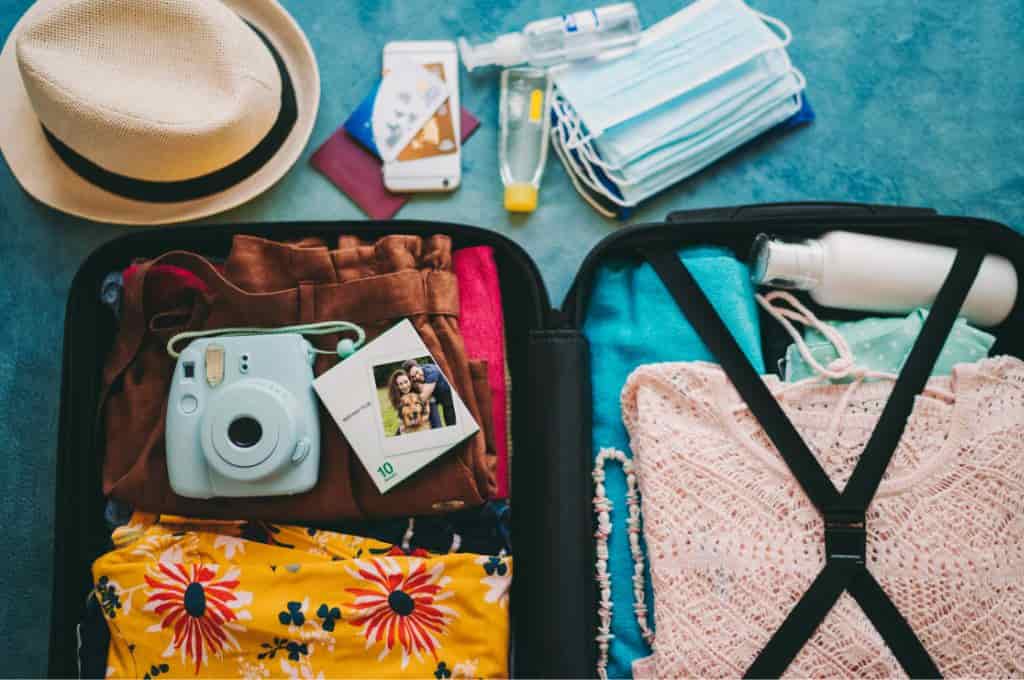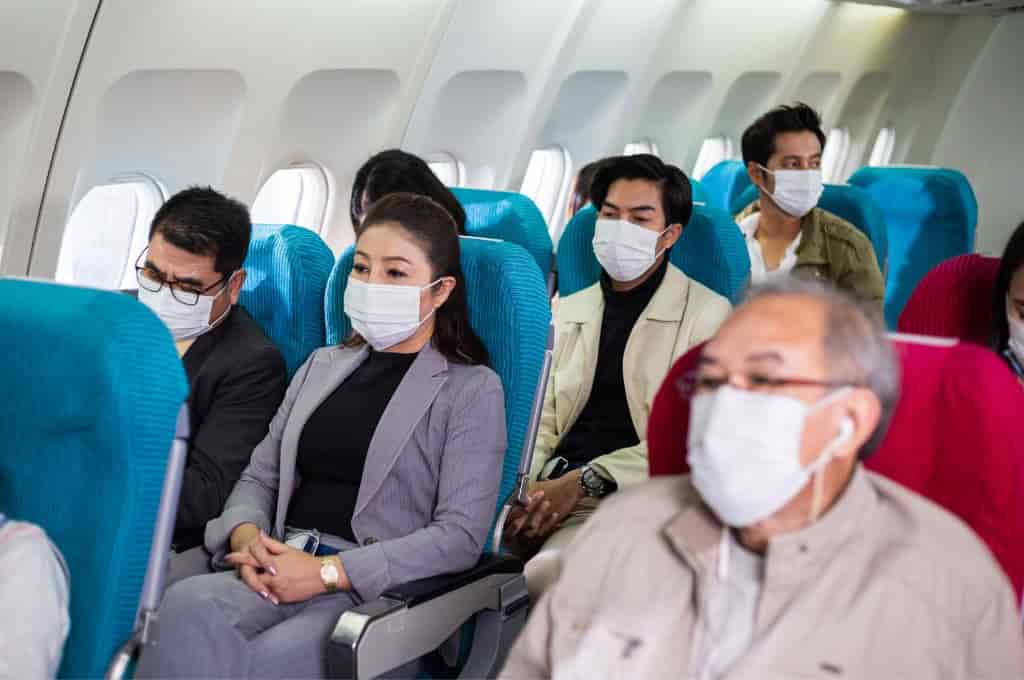How to Avoid Geting Sick While Traveling?
- By Seema
Getting sick while traveling is the worst thing that can happen to your trip. Nobody wants to spend their vacation stuck in bed while their family/friends go exploring. Being sick is an inevitable part of life, but being on the road exposes you even more. It exposes you to unknown bugs, changing weather, unfamiliar foods, contaminated water, and a foreign environment, which increases the chances of falling ill. It throws off your routine of healthy eating, exercise, and adequate sleep, making your immune system vulnerable.
The most effective defense against illness is to lower our exposure to the risk factors that can make us sick. If you’re going on a trip, there are a few simple steps you should take to stay safe and healthy. None of these tips will guarantee you won’t get sick, but they will help reduce your chances of getting gastric upsets, colds, viruses, and other common diseases while traveling.
1) Prepare Early
A smart way to avoid getting sick is to start preparing at home. Learn about the health risks, required vaccinations, and any health advisories for your destination. Before you leave, make sure that you complete any recommended immunizations and preventive medications. Drink lots of fluids and get plenty of sleep a couple of days before your trip. You can also take the right vitamins before boarding a plane to boost your immune system.
It goes without saying that you bring all of your medicines, first-aid supplies, hand sanitizer, insect repellent, face masks, sunscreen, and clothing suitable for the weather. While visiting a foreign country, purchase travel insurance that includes medical expenses and evacuation in the event of an emergency. It provides you with financial protection as well as peace of mind.

2) Take Precautions While Flying
Spending hours with strangers in a confined space with recirculated air exposes you to all kinds of viruses. As a result, you should exercise extra caution when flying. Stay hydrated by drinking plenty of fluids, as the air inside planes can be very dry due to the higher altitude. Clean surfaces on a plane that you will have direct contact with, such as the headrest, touchscreen, tray table, and armrests, with disinfectant wipes. Hand sanitizer should be used regularly. Keep your handbags off the plane’s floor. During a long flight, get up from time to time to stretch your legs. This can reduce the risk of blood clots and keep your back from becoming strained after sitting for hours in a cramped seat.
3) Minimize Jet Lag
Traveling across multiple time zones disrupts your internal body clock, which can lead to fatigue and illness. Although jet lag cannot be totally avoided, it can be lessened. Rather than attempting to go to bed 6 hours earlier the day you arrive, try gradually adjusting your sleep schedule to match the time zone of your destination. You can begin this process a few days before your departure by tweaking your home bedtime by 30-60 minutes each night. Including a rest day at the beginning of your trip helps in the smooth transition between time zones.
If that is not possible, plan a more relaxed itinerary for the first day with easier activities. Getting a good night’s sleep while adjusting to your new surroundings can make the rest of the trip go a lot more smoothly. You may be tempted to sleep less during your trip to make the most of your time away, but this can be detrimental to your health. It is crucial to maintain healthy sleeping habits to avoid infections and maintain a robust immune system.

4) Use a Face Mask
Wearing a face mask can help protect you and others from germs. Although the worst of COVID may be behind us, it is still prudent to use face masks in crowded places, as well as on public transport and flights. A well-fitted mask is a simple and effective barrier that prevents infectious droplets from entering your respiratory tract.
5) Wash your Hands Regularly
One of the simplest ways to stay healthy while traveling is to wash your hands frequently and thoroughly (20 seconds). It reduces the odds of transferring infection-causing viruses and bacteria into your system, which could make you sick. If soap and water aren’t available, use an alcohol-based hand sanitizer. Avoid touching your eyes, mouth, or nose with unwashed hands because these are three vulnerable points through which most airborne germs enter our bodies.
6) Stay Hydrated and Drink Only Safe Water
Always keep your body hydrated by consuming plenty of fluids, but make sure the water you drink is safe to take in. Do your homework on the relative safety of the country’s water supplies. Locals cannot be relied on because their bodies may be immune to any impurities in the water they drink. If you’re concerned about the purity of the water, stick to bottled, sealed beverages. To avoid contaminated drinks, double-check that the seals are intact. Rinse the cans and bottles with filtered water before drinking from them. Refrain from adding ice cubes to your drinks, as you never know where the water comes from. Avoid sharing drinks and food with people.

7) Eat Wisely
Trying the local cuisine is a fun part of traveling, but do it in moderation so your stomach doesn’t get overwhelmed. Take it easy and try to mix local dishes with foods you already know and tolerate. Never overeat, especially when it comes to heavy, spicy food items. Contaminated food can cause stomach upset, diarrhea, vomiting, and other gastrointestinal diseases, all of which can severely disrupt your travel plans. To reduce the risk of food poisoning, choose hot, freshly cooked meals. Never consume any type of salad, cut fruit, or raw vegetables, as they might have been cleaned in polluted water. Milk and dairy products are best avoided in warm climates, especially if vendors appear to leave things unrefrigerated. Stay away from street food if you are unsure about its hygiene and preparation standards.
8) Avoid Bug Bites
Ticks, flies, and mosquitoes can transmit diseases such as dengue, malaria, chikungunya, Zika, yellow fever, and more. Your destination research will indicate which types of bugs are a major concern. Even if you are visiting a low-risk area, you should still protect yourself. Invest in a good insect repellent and apply it to exposed skin as needed. Wear light, loose clothing that covers the majority of your skin, especially if you’re going out during peak exposure times or in mosquito-infested areas. Sleep under mosquito nets and use anti-mosquito coils and plug-in gadgets if required. An air-conditioned room is the best repellent for mosquitoes and other pests.
9) Protect Yourself from the Sun
Getting a bad sunburn while on vacation is one of the most painful things that can happen to you. Your best line of defense when going outside during the day is to wear protective clothing and apply generous amounts of sunscreen with an SPF of 30 or higher. Sun protection isn’t just for the beach; you can get a sunburn even if it’s cloudy or cold outside. High altitudes, as well as sun reflection off snow and water, can magnify the sun’s effect.

10) Dress for the Weather
Everything you wear should be appropriate for the climate in the region you are visiting. Light-colored, loose-fitting clothing made of breathable fabrics like cotton, rayon, and linen is recommended for hot summers. Natural fibers aid in sweat absorption and circulation. Polyester and synthetic fabrics are sticky, causing sweating and high body temperatures.
When traveling in cold weather, dress warmly in multiple loose layers that can be unlayered as needed. If you’re going somewhere where it’s snowing, bring warm, thick woolens that will keep you warm in frigid temperatures. Wearing inappropriate clothing and footwear can make you sick as well as uncomfortable. It can ruin your vacation because who can enjoy the sights when they are shivering from the cold? Please check the weather forecast before packing.
What should you do if you still get sick?
We can take every precaution, yet still fall sick while traveling. So, what are your options? For relief from stomach pain, cramps, colds, flu symptoms, coughing, diarrhea, vomiting, acid reflux, and other related issues, take some over-the-counter medications. It would also be a good idea to rest for a day and sleep off the bug. However, if you believe you require medical attention, do not delay in seeking it. Get your hotel to call a doctor or contact your insurance provider and enlist their help to get medical help. Stay calm and don’t panic. Things will soon improve, and you will be able to relax and enjoy your vacation.
